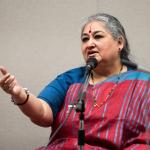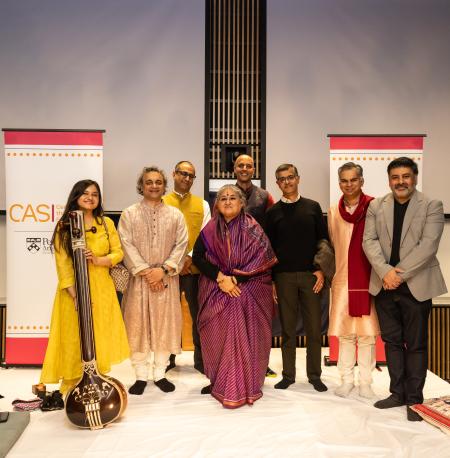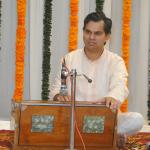Moderated by Davesh Soneji (South Asia Studies, Penn)
In partnership with the South Asia Center, Dept of South Asia Studies, and Penn Music
About the Event:
In this lecture and musical performance, renowned vocalist Shubha Mudgal provides brief illustrations of the vocal forms known as khayal and thumri-dadra, with accompaniment on the tabla by Dr. Aneesh Pradhan, on the harmonium by Dr. Kedar Naphade (both highly accomplished and renowned artists in their own right), and Vaishnavi Tyagi on the tanpura. While khayal is categorized as classical and, in a sense, more blue-blooded in its adherence to the raag and taal paradigm, thumri is commonly categorized as semi-classical and, therefore, given a lower status. The reason for this could be the close association thumri enjoyed with Kathak dance that was performed by women performers usually called courtesans or tawaifs. The stigmatized social status of these women performers relegated the thumri to a lower category in the pantheon of Hindustani musical forms.
An essentially oral tradition, Hindustani music has witnessed radical changes over the past century. But the rapidity of change that has been experienced in the last two decades, particularly due to the advances in technology, has worried connoisseurs and senior musicians. In an interaction led and moderated by Davesh Soneji (Associate Professor, South Asia Studies Dept, Penn), Mudgal and Pradhan discuss their journeys as students of Hindustani classical music in changing circumstances that demand constant adaptation and re-orientation. The status of musical forms, instruments, and performers in modern day India forms part of the conversation, interspersed with brief illustrations performed by the three artists.
Event Flyer



